
The following article by David Strange was originally published on 19 Jun 2016.
By and large, I hold to the belief that all are created equal, and I stubbornly cling to the great American dream that anyone, through hard work and sacrifice, can succeed. But I think we all know, deep down, that in The Great Footrace of Life, the runners start out at different places on the track. Though generally possessing equal gifts at birth, Life's realities affect what each of us, from our earliest days, can do with those gifts.
When my father, Melvin "Dawson" Strange, was a boy, he was one of eight children in a financially poor but hard-working family. Life was very hard for most folks in those 1930's and 40's Great Depression and WWII days. Especially so for folks who had already been barely getting by.
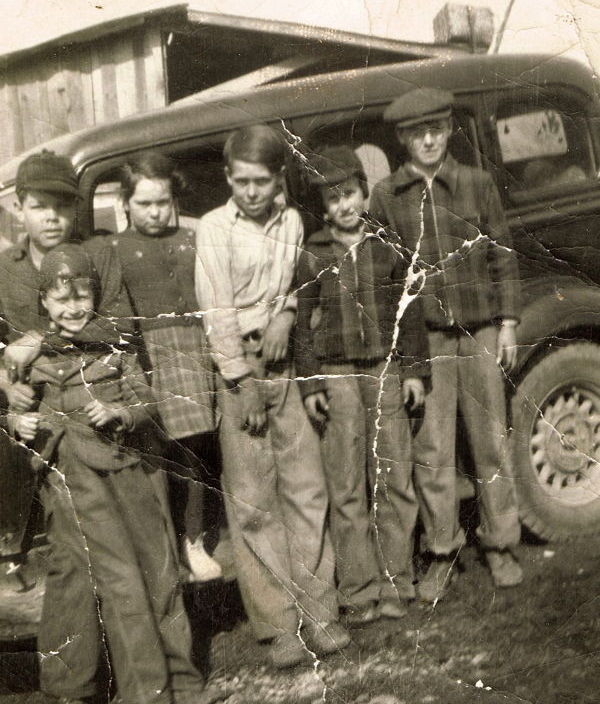
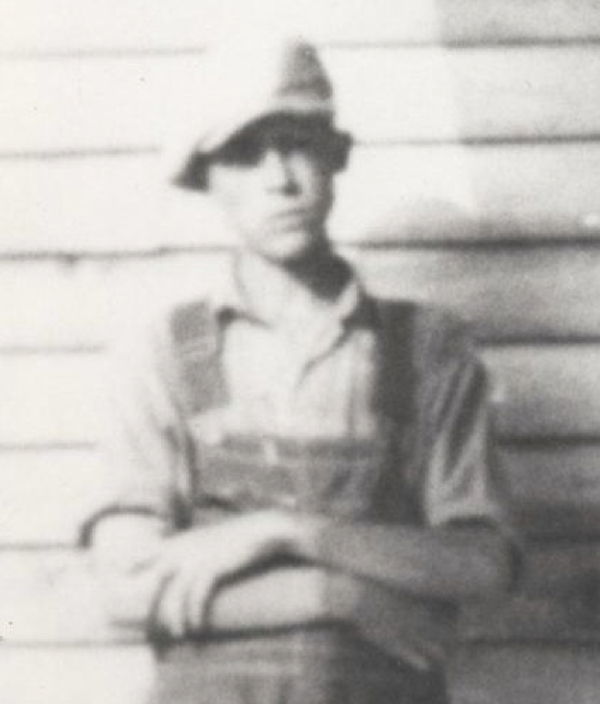
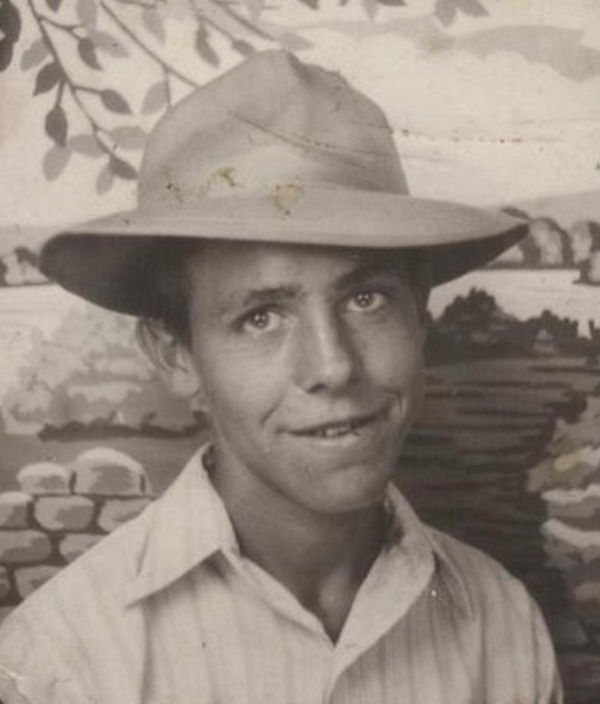
When Dad was in fourth grade, the family moved to Louisville, Kentucky, to find work. Unable to get good records from his former school, the city school dropped him back to third grade. But that was OK. Dad loved school; loved learning. His older siblings had been forced to drop out of school much earlier in order to help the family make a living, so Dad valued the sacrifice and did his best to make good of the opportunity, slim as it might be. Even as a 13-year-old boy, he, along with his brothers and sisters, was expected to work long hours digging potatoes in the fields where the state fairgrounds and the airport now stand; give the money to the family; and then manage on his own to attend school and do school work.
But manage he did.
Eventually, teachers noticed his aptitude and Principal Lillian Logan at J. Stoddard Johnston Elementary School promoted him two extra grades and moved him on to 7th grade at Halleck Hall Junior High School (later to become Manual High School). He loved it! Though life was hard at home, and he had to suffer humilities of being poor at school, he excelled in math and to this day remembers long poems that he learned there.
But when it was time for 8th grade, he was told that he needed to buy a certain school book. The book cost one dollar. Only one dollar, but for him it might as well have been a thousand. Dad knew better than to ask his parents for such a sum. His parents had grown up in harsh conditions and, though they tried to overcome it, experience no doubt colored their outlook on life as it did everyone around them. Dad did manage to scrape together all but seventeen cents for the book. But after doing all he could do, he could do no more.
So Dad went to his parents and asked for the 17 cents so he could buy the book. He remembers his father say that the book, or even school, was not necessary when the family was in such need. "It's time to get a job."
The word "horrible" ground out of Dad's mouth when I asked how he had felt about that. But that was that. He never made it past 7th grade, for lack of 17 cents. It was a bitter blow that he remembers powerfully to this day, over 70 years later, though he only spoke of it recently.
Dad moved on, getting a job at VC Glass Carpet Company at 14 years old, making 37 cents an hour cleaning oriental rugs. In a testament to Dad's attitude and to Mr. Glass, Dad does not remember that experience as bad; he even attributes his love of oriental rugs to that experience. At 16 years old, Dad left VC Glass, despite an offer of a nickel raise to stay, for a job at HJ Scheirich Cabinet Company; then L & N Railroad; then Armour & Company (working two jobs and long hours to try to get a little ahead for his new family); and finally starting at the new GE Appliance Park on May 18, 1953, working blue-color jobs there for 37 years until he retired, having become part of the new Middle Class.
After all those years, bitterness can be found only in a few of the most hidden places of Dad's heart. "God has been good to me," he is quick to say. "I have a good, loving family and a good life. It's no telling what would have happened differently if I had gotten that 17 cents." "Blessing" is a word most used by him these days.
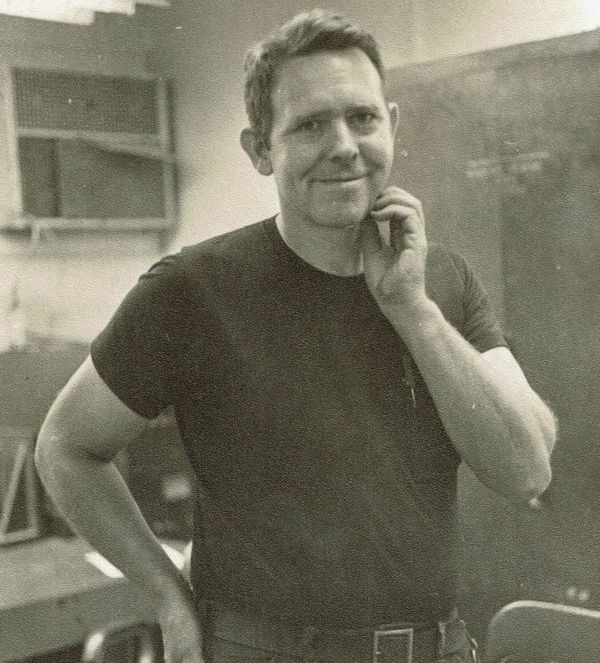
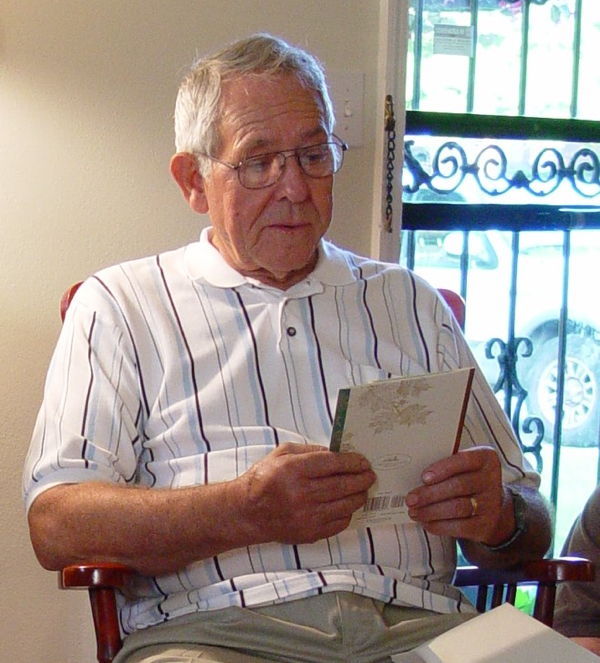
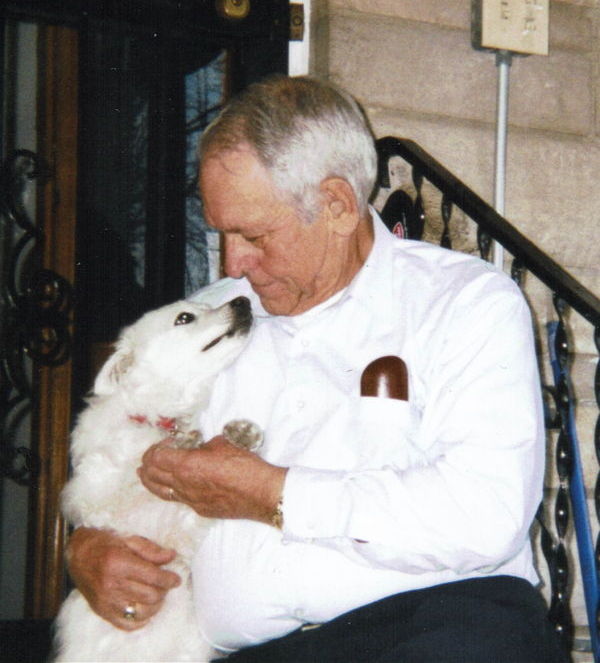
And I suppose that is my point in this story. Attitude is everything. We are all placed at different starting points on this footrace of Life. My brother and I both wonder how far Dad might have gone if he had been born into a wealthier, educated family and seen a "more fair" start. We with our "successful" careers and education sometimes self-righteously wince at his rough-hewn, unsophisticated ways. Yet we also love him and respect him mightily, as do hundreds of people he has unselfishly helped in so many ways over his years.
My Dad was born more than equal to anyone, but Life placed him a little farther back on the track. He did his best; ran hard, overcoming many obstacles along the way; passing some who started out ahead, not quite catching up to others. But he ran the race with a full heart, with honesty and integrity and with all that he had.
That, to me, is a successful life. I only hope, given the head start that he never had, that I can run the race as well.
Copyright 2016 by David Strange, Shepherdsville KY. All rights are reserved. No part of the content of this page may be included in any format in any place without the written permission of the copyright holder.
The Bullitt County History Museum, a service of the Bullitt County Genealogical Society, is located in the county courthouse at 300 South Buckman Street (Highway 61) in Shepherdsville, Kentucky. The museum, along with its research room, is open 10 a.m. to 4 p.m. Monday through Friday. Saturday appointments are available by calling 502-921-0161 during our regular weekday hours. Admission is free. The museum, as part of the Bullitt County Genealogical Society, is a 501(c)3 tax exempt organization and is classified as a 509(a)2 public charity. Contributions and bequests are deductible under section 2055, 2106, or 2522 of the Internal Revenue Code. Page last modified: 12 Sep 2024 . Page URL: bullittcountyhistory.org/memories/melvinstrange.html